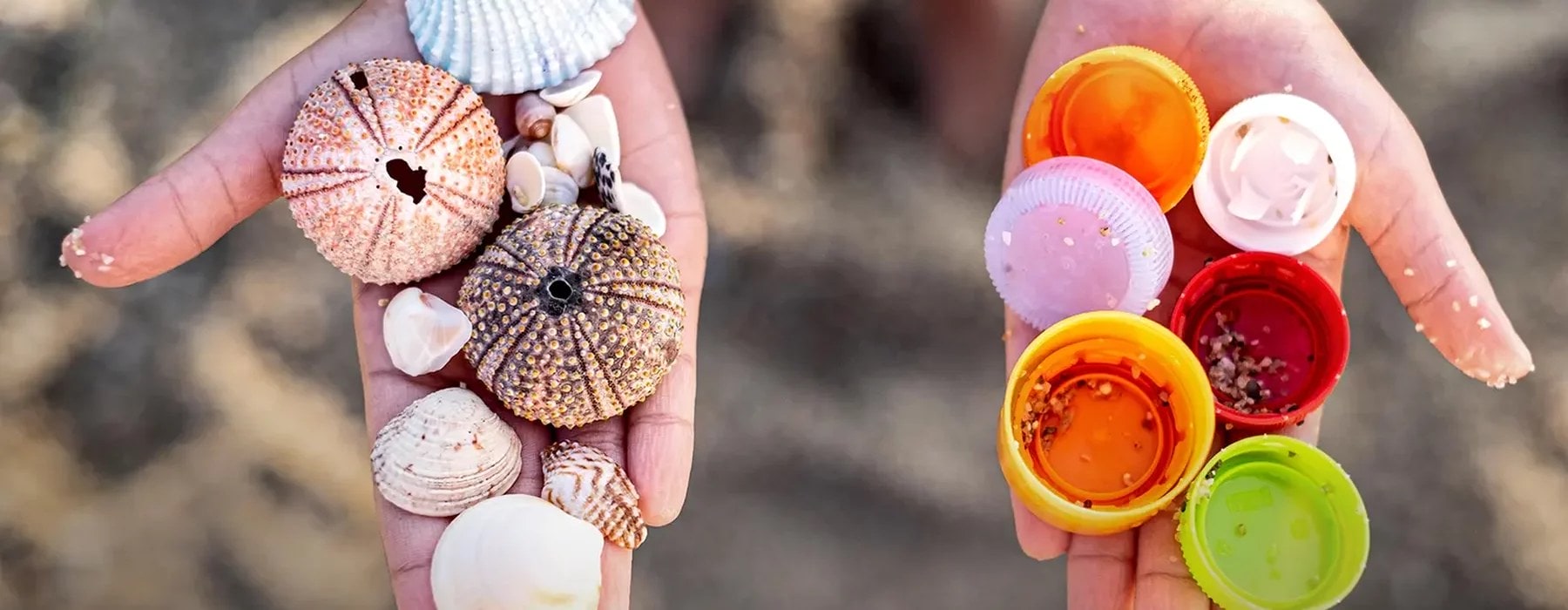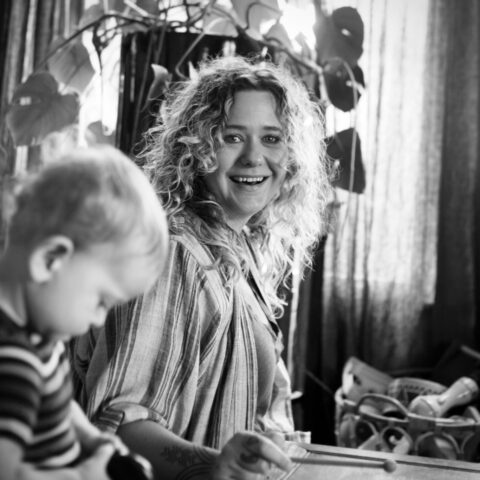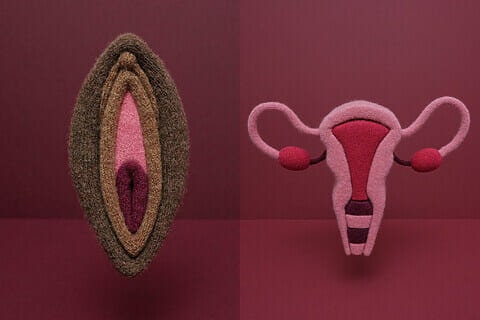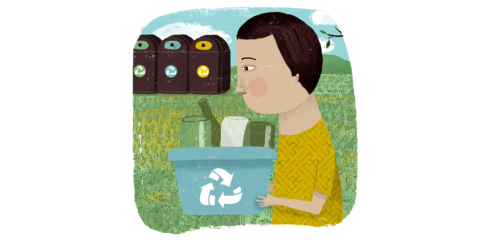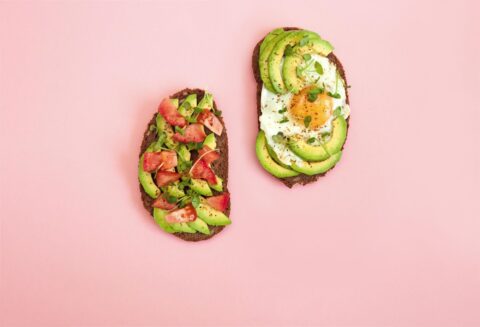Plastic is one of those products that is so ubiquitous, you barely even register it.
The invention of Bakelite in the United States in 1907 kick-started the modern age of plastic, with endless varieties of new plastics replacing more expensive existing materials. Soon clothes, bottles, building materials and even teabags contained plastics – with worldwide plastic production hitting 368 million tonnes in 2019.
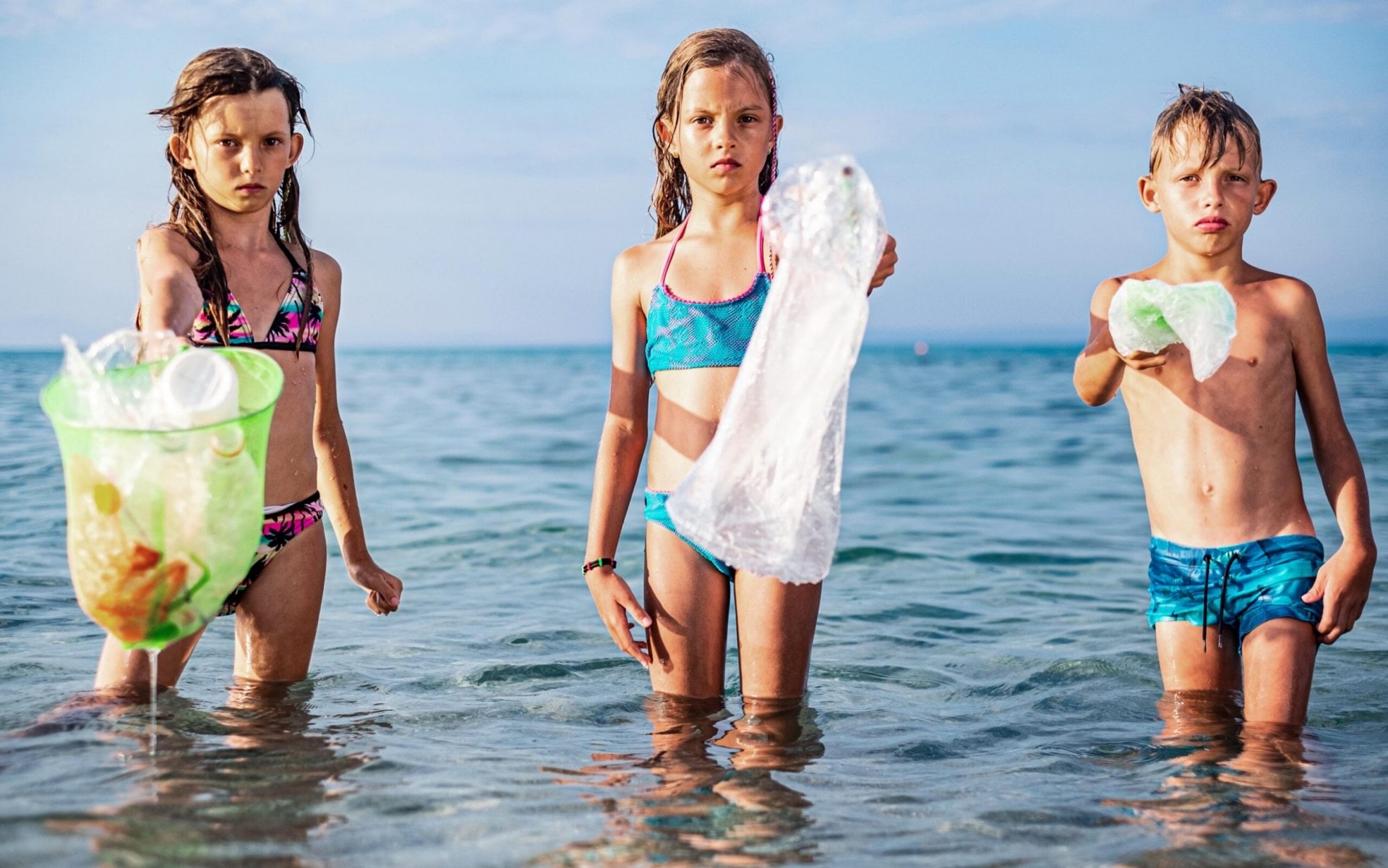
Scientists have been warning about the dangers of plastics in our oceans for decades, but faced with images of turtles hopelessly caught in plastic netting and mountains of plastic bottles in tips, there has recently been a long overdue plastic backlash. Here are a few ideas for reducing the amount of plastic in your household.
Bathroom
1. Wise Up On Loo Paper
Look for toilet paper that isn’t encased in plastic wrap. You can go one step further for the environment by purchasing recycled toilet paper. (Recycled from paper that was previously used in homes and offices – not used toilet paper, ew!)
2. In The Fine Print
Check your ingredients! Microbeads were banned in New Zealand in 2017, due to the harm they cause to aquatic animals and their ecosystems. However, there are a number of other plastics that slip under the radar in cosmetics. Acrylates copolymer and polyethylene are found in many moisturisers, body washes, sunscreens and shampoos. “Microplastics like acrylates copolymer are every bit as dangerous to oceans, wildlife and humans as microbeads,” says Greenpeace Aotearoa plastics campaigner Phil Vine.
3. Brush Up
You might not think your plastic toothbrush is doing much damage – but if you replace it every three months as recommended, that’s 60g of plastic headed to the tip. If you multiply that by the team of 5 million – it’s a whopping 300,000kg. Why not try a bamboo toothbrush? Grin’s bamboo toothbrush handles are 100 percent biodegradable. They do have nylon bristles, but it’s still an improvement.
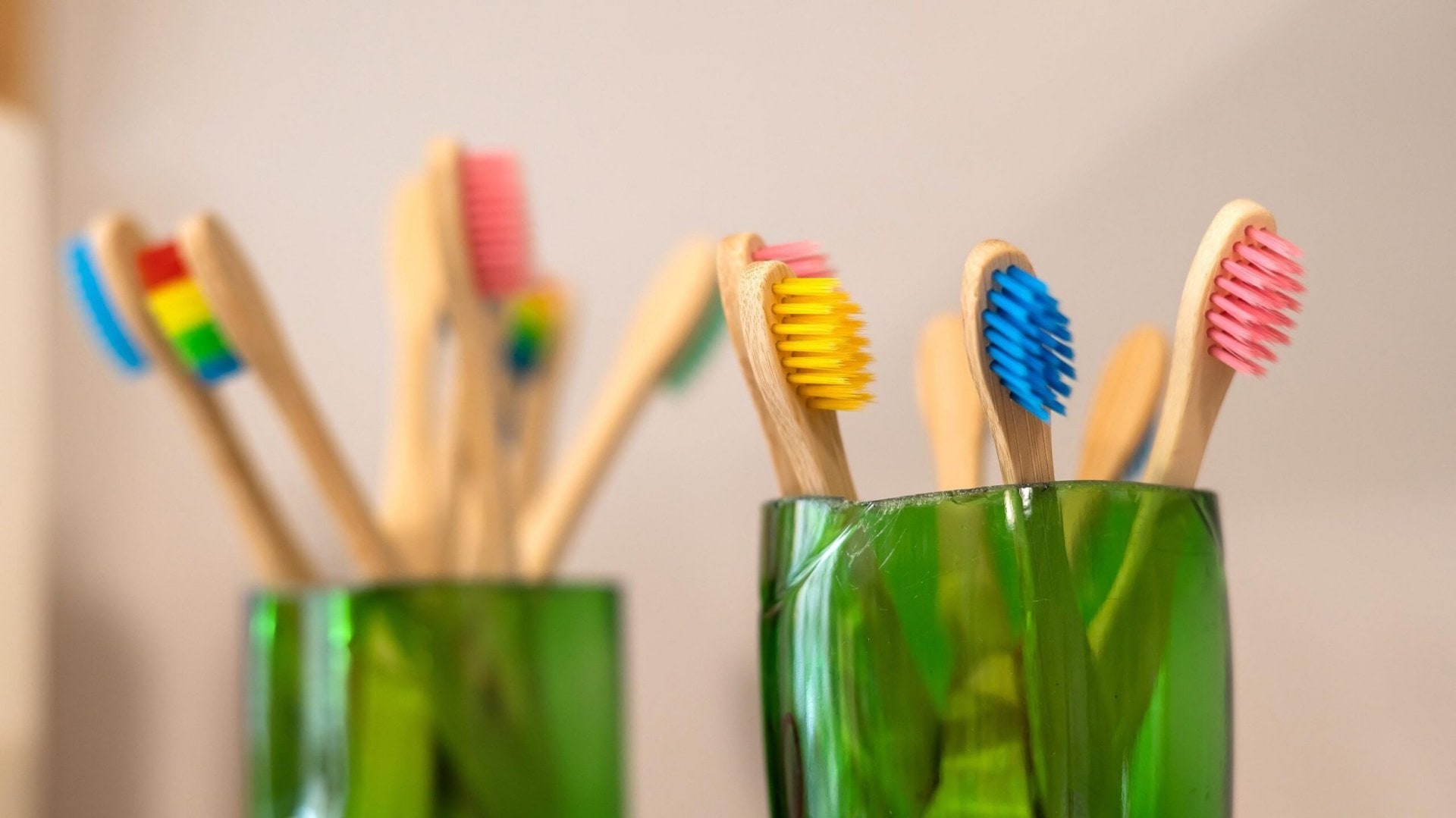
4. A Better Floss
While you’re at it, give plastic-free floss a go. Do Gooder has silk dental floss available, and EcoWarehouse has a bamboo option. You could also swap your non-recyclable tube of toothpaste for toothpaste tablets or powder – Nature Body does a nice one that comes in a glass jar. And buy mouthwash tablets rather than plastic bottles of the stuff.
5. Everyday Change
Rethink your deodorant and ditch the plastic roll-on. Nature Body has a range of organic deodorants that come in compostable cardboard tubes and Ethique offers solid deodorant bars.
6. Haircare
More than 80 billion plastic shampoo and conditioner bottles are thrown out globally each year. So switching from plastic bottles of shampoo, conditioner, hand soap and body wash to bars makes a big difference. Even better if they come in cardboard packaging. If you really can’t ditch liquids, buy concentrates and just add water to make your own.
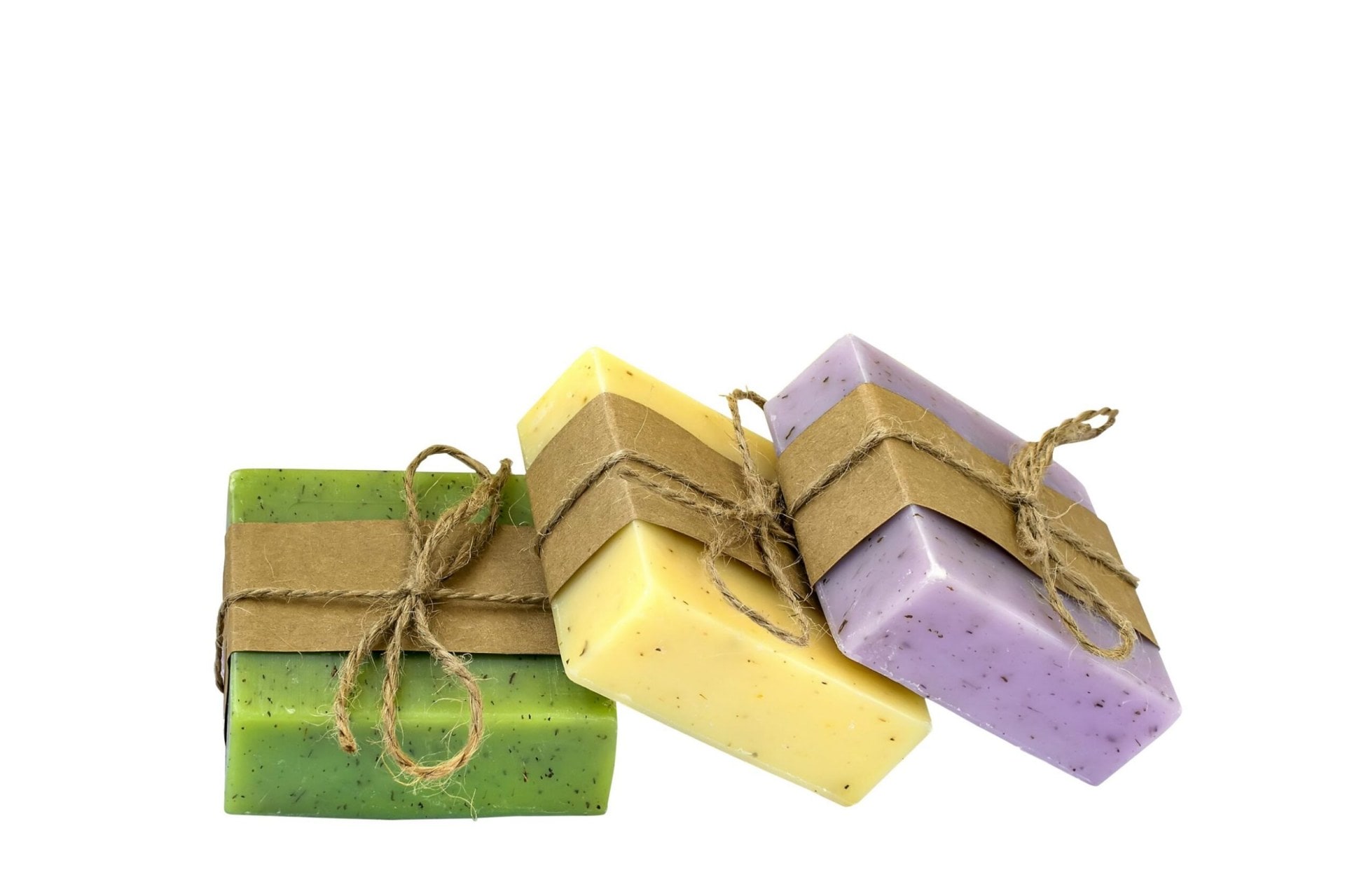
7. Period Products
These create a lot of plastic waste, as the average woman will use 11,000 menstrual products during her lifetime. Investigate period underwear or moon cups. You can also look for organic cotton tampons (most tampons contain rayon and polyester) with cardboard applicator tubes, or pads that biodegrade.
Kitchen
8. Keep It
First of all, don’t throw out the plastic containers you already have! As they break, buckle or wear out look into stainless steel or glass replacements – Mason jars are a great option.
9. Feeling Bubbly?
If you can’t quite kick your fizzy drink addiction, invest in a SodaStream. Yes, we know they’re plastic and so are their bottles. But think about how many plastic bottles you won’t be putting in the recycling. Plus home-fizzed water with a squeeze of lime is so much healthier than a Coke.
10. Coffee Pod Process
Love having café-quality coffee at home, but worried about waste? You can buy reusable. coffee pods suitable for Nespresso machines at The Green Pods and Pod N Save. Simply fill the capsule with ground coffee and use as usual.
11. Greener Wrap
Plastic wrap is one of those plastics you might not even think about, since it’s been the go-to for covering food for decades. If you need to wean yourself off it there are options with less plastic – GladWrap has Glad to be Green Wrap that is made using 50 percent plant-based material and Compostic offers a 100 percent compostable option. You can also try beeswax wraps, which are compostable and come in cute prints. If you’re not transporting the food anywhere, a plate on top of a bowl in the fridge works just fine.
12. Wipe Up
Most kitchen sponges are made from plastic. They’re not recyclable, so when they wear out, to the landfill they go – plus every time you use them tiny bits of plastic head down the drain. But there are plenty of washable or biodegradable options, like coconut-fibre scrub pads, Ecovask’s knitted cotton dishcloths and Bar of Hope’s 100 percent natural sponges.
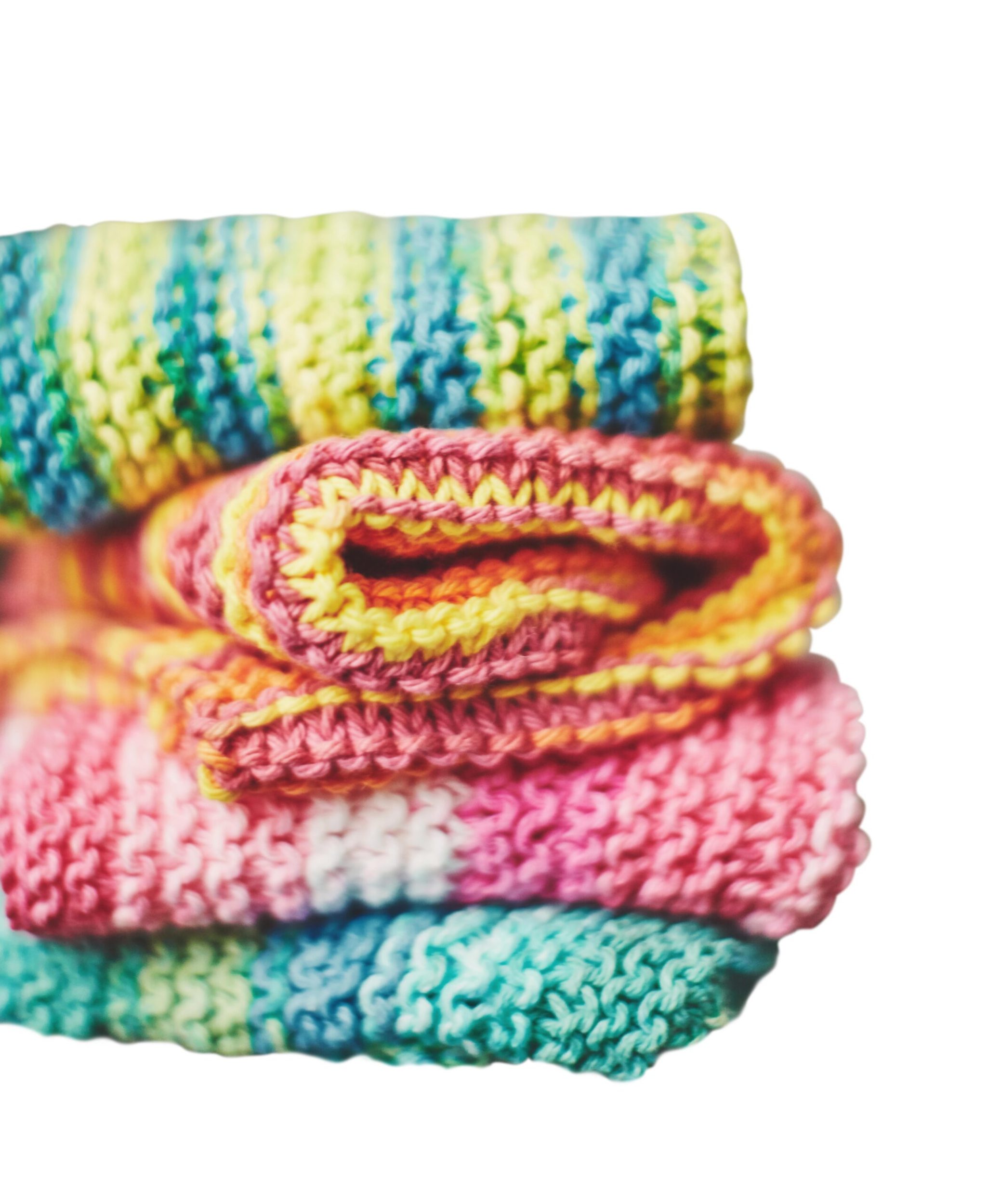
13. Could You Make It?
Look at products you buy in the supermarket that come in plastic, and think about whether you could make them yourself. Hummus, yoghurt, nutty bars for school lunches, muesli… it’s even pretty easy to make your own crackers. If you buy the ingredients from bulk bin stores it saves a heap of plastic packaging.
Niki Bezzant’s Yoghurt Recipe:
You will need:
1 litre milk (or however much you have)
A small amount of commercial yoghurt (or leftovers from your homemade yoghurt)
A thermometer
A jar
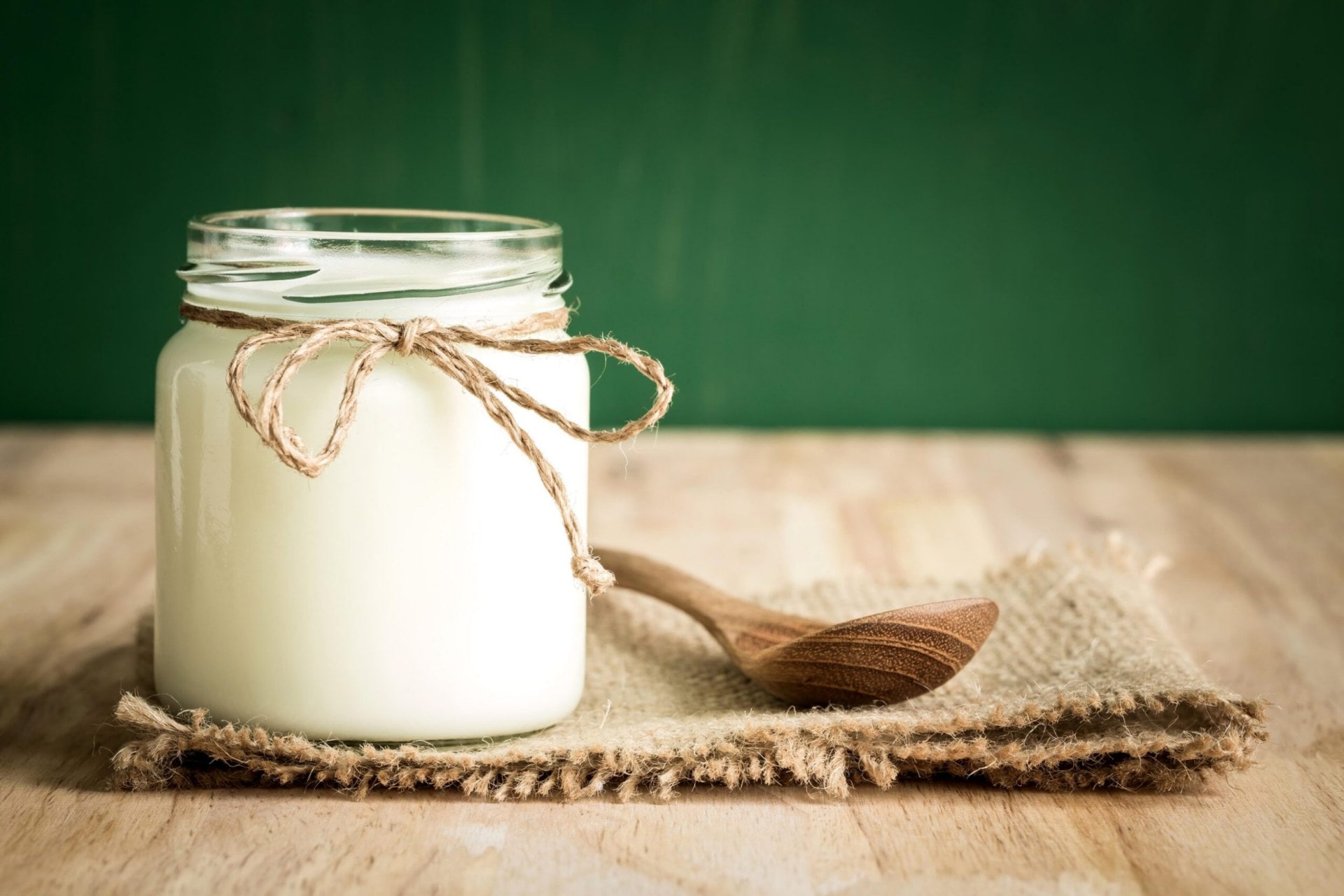
Method
1. Heat milk to 85°C in a pot over medium heat. Take it off the heat and cool to 45°C.
2. Add existing yoghurt to cooled milk in a jar.
3. Preheat your oven to its lowest heat, then turn off, just leaving the light on.
4. Leave jar in the oven for 10 hours. You can leave it out on the bench overnight for a thicker version.
14. Bin Alternative
Try lining your rubbish bin with newspaper so you don’t have to use plastic rubbish bags (this is easier if you’re not putting food scraps in the bin). Commit to composting, and freeze food scraps before wrapping in paper on collection day.
15. Old Style Brew
Teabags – they’re so convenient, but most of them contain plastics such as polylactic acid (PLA) or polypropylene. PLA is plant-based, but doesn’t break down easily, so it’s unlikely you would be able to recycle it back to nature in your home compost heap. Luckily, there are loads of loose-leaf teas to try, and there’s something lovely about the ceremony of making a pot of tea. You can safely add the leaves to your compost or worm farm.If you don’t want to make a whole pot of tea, you can get basket infusers, tea balls and stick infusers.
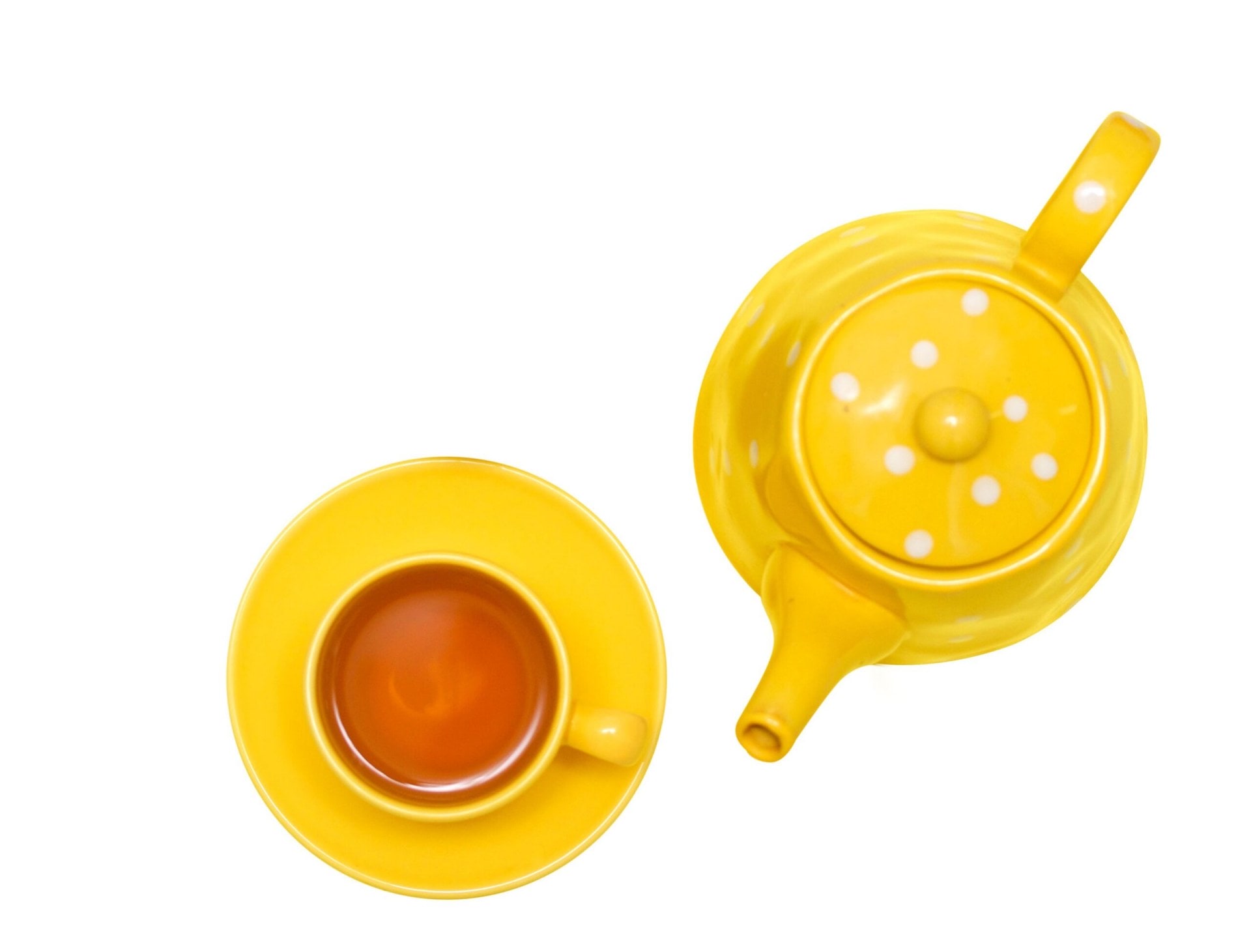
16. Cold Storage
The freezer is often the last frontier for plastic, but if you keep reusing plastic containers you already have, at least you’re not buying more! Some people suggest freezing soups in sturdy glass containers, but leave enough space for the liquid to expand, and only screw the lid on when it’s fully frozen. Reusable silicone freezer bags are a useful alternative, you can wrap items in tinfoil, and meat from the butcher will last in the freezer for a while if well-wrapped in paper.
Shopping
17. Don’t Bring It Home
There are many ways to cut down on plastic at the supermarket. Try to buy things unwrapped where possible – loose apples rather than ones encased in plastic, or bread in a paper bag. Pick glass, metal and cardboard packaging over plastic. Opt for oats or pasta in cardboard boxes, cans of soft drinks, oil and condiments in glass bottles and jars, and so on. Choosing brands that have metal rather than plastic lids means one less plastic item.
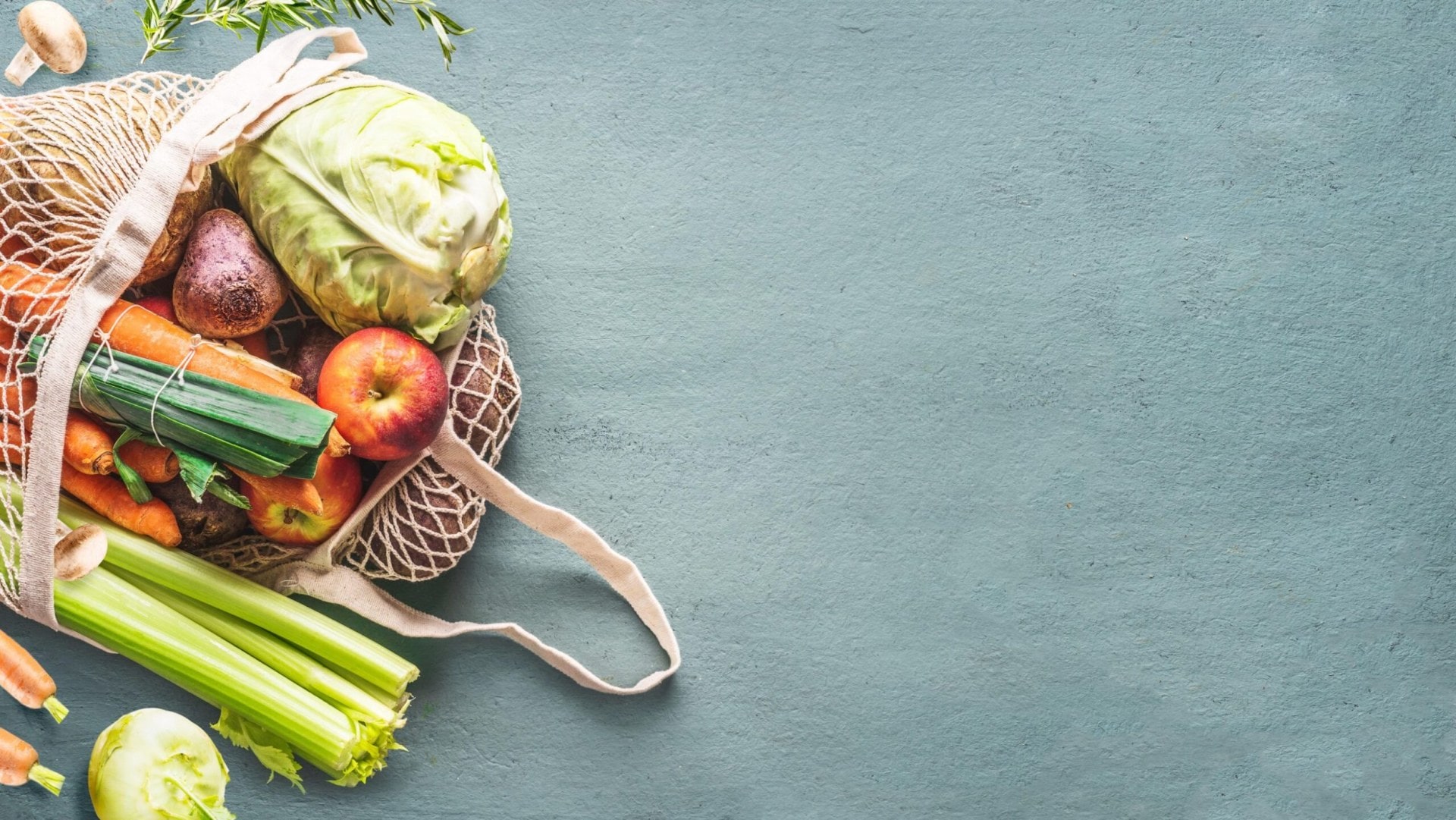
18. Refill It
To really cut your plastic packaging, take containers or your own reusable bags to places such as Bin Inn, GoodFor refilleries, Harvest by Huckleberry refill hubs, The Source Bulk Foods or Sprout the Grocer.
19. Save Soft Plastics
Despite your best efforts, you will probably end up with some soft plastics, and these can be recycled – including bread bags, produce and frozen food bags, courier packs, bubble wrap, breakfast cereal and snack-food packaging. Make sure they are clean and dry, then take them to a soft-plastics recycling bin, located at many supermarketsand Warehouse stores around the country. See Recycling Kiwi to find collection points.
20. Pet Food Pouches
If your pampered felines prefer food that comes in single-serve pouches, there is some good news. TerraCycle and Royal Canin have created a recycling programme. You need to wash your pouches out and make sure they are properly dry. (I know, yuck. But worth it.) Then drop dry pet food bags and pouches at selected vet clinics. You can recycle pouches that aren’t made by Royal Canin through this programme too. Once collected, the pet food bags are shredded, then melted down and pelletised to be recycled into new products.
Cleaning
21. Clean Like Nana
Put together a green cleaning kit. It turns out that white vinegar, citric acid, bicarbonate of soda and lemon (nature’s degreaser) are all you need to clean most things. Throw in a couple of essential oils (tea tree oil is antibacterial and clove oil kills mould) and wipe away.
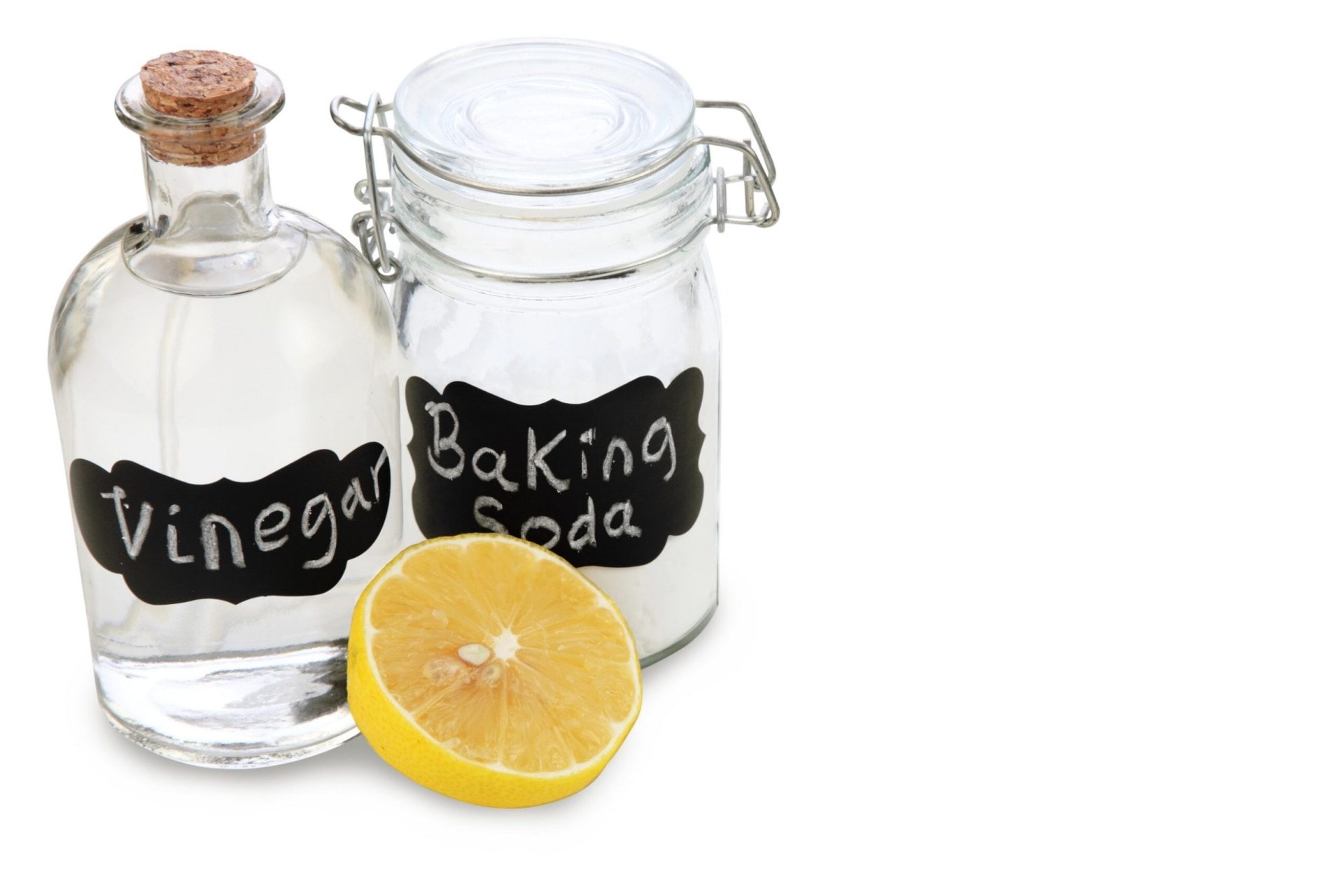
22. Wipes Are Out
Wet wipes are another sneaky plastic. Used to clean everything from babies to bathrooms, the vast majority are made from a mix of plastics such as rayon or polyester. On top of that, some say they are flushable, but there is no plumber in the world who would agree. They cause trouble at waste-water facilities, but before they even arrive they can cause major blockages in your pipes. Reusable cloths or paper towels are a far better solution.
23. Window-Wise
Ever watched a professional window cleaner at work? Guaranteed there won’t be a plastic spray bottle in sight. Put a couple of drops of detergent in a bucket of water, give your windows a good scrub and scrape with a squeegee for a flawless finish.
24. Top Them Up
Rather than buying new plastic bottles of cleaning products, try refilling them. Ecostore offers 90 refill stations throughout New Zealand.
25. Strong Stuff
Buying concentrates means less plastic bottles– Dazz offers cleaning tablets that you pop into glass bottles and Ecostore has concentrated cleaners in tiny glass bottles. Add water and you’re good to go.
Clothing
26. What’s In That Fabric?
If you want to avoid plastic-based fabrics, check out the labels and steer clear of polyester, nylon, spandex, rayon, lycra and polyamide.
27. Open Air
Hang your clothes on the line or a clothes horse rather than using a drier. The hot temperatures and friction of a tumble drier decrease the lifespan of your clothing, meaning you’ll be buying new and potentially plasticky garments more often.
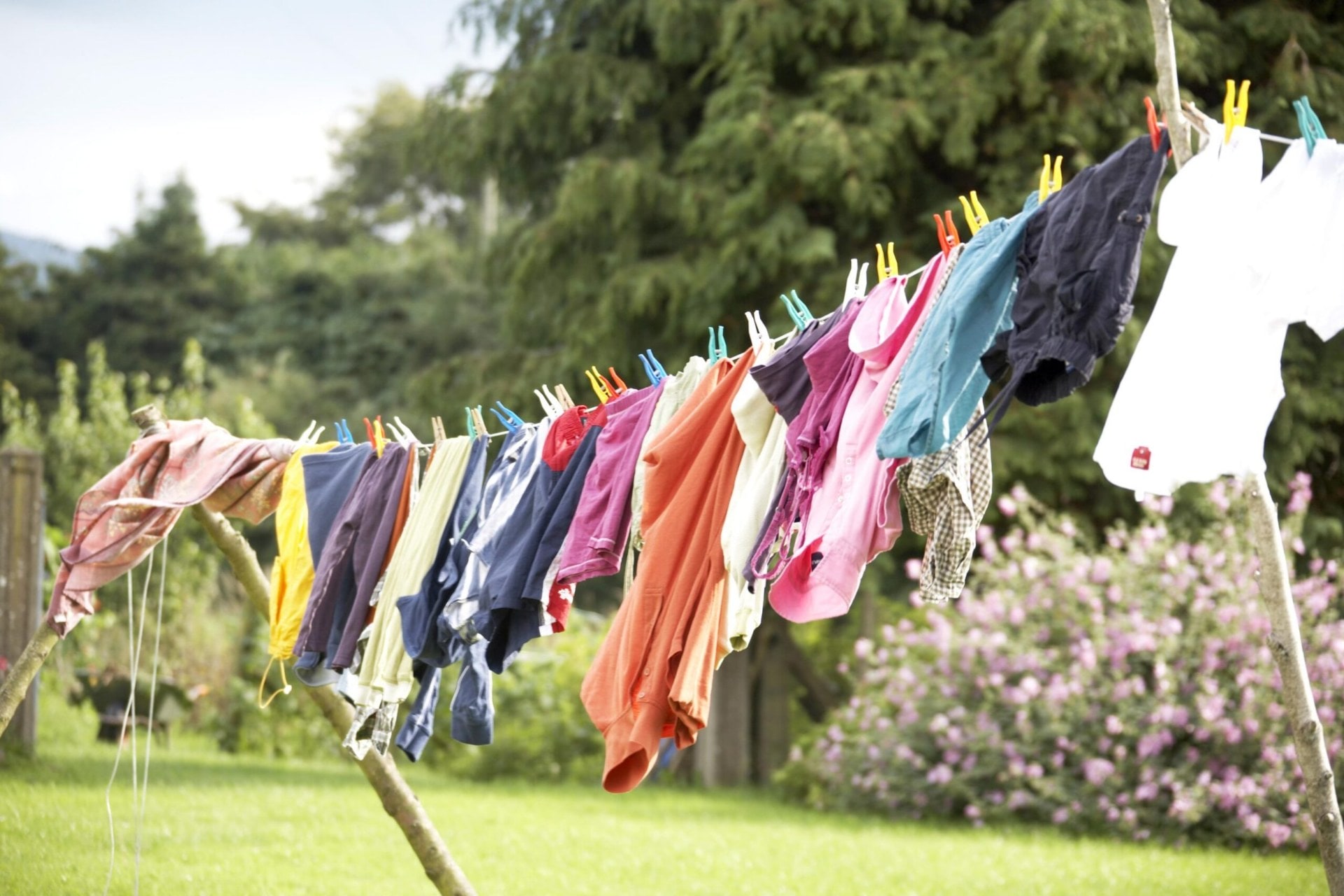
28. Natural Fibres
If you’re looking to replace wardrobe items, consider plastic-free materials such as cotton, silk, wool or hemp. Even blends, which are generally cheaper, will reduce the amount of plastic overall. Browse the aisles of your local second-hand store. By purchasing something pre-loved, you’ll be removing the demand for new plastic-based fabric.
29. Less Laundry
Wash your clothes less. Every time you put a load of laundry on, synthetic clothes shed about 700,000 microfibres (tiny particles of plastic). According to Friends of the Earth, microfibres have been found in air, rivers, soil, drinking water, beer and table salt. Try airing your garment outside if it just needs a refresh, spot cleaning to get rid of marks, or if something isn’t too dirty, a quick rinse on a cold cycle.
On The Go
30. Self-Service
Get in the habit of taking cutlery and a reuseable straw with you. That way you can say no to plastic cutlery (which is not usually accepted for recycling) as well as plastic straws and stirrers. While you’re at it, decline the little fish-shaped containers of soy sauce, packets of sushi ginger or any other plastic paraphernalia you’re offered while you’re out.
31. Refill On The Go
Invest in a reusable water bottle and take it with you so you’re not tempted to buy a plastic one. Drink manufacturers sell an estimated one billion single-use plastic bottles every year in New Zealand but only 35 to 45 per cent of “recyclable” beverage containers are actually recycled. Go to Refill NZ to find outlets that will let you refill your water bottle for free when you’re on the go, so you can be a refiller, not a landfiller!
32. Not Just Paper
Another essential is a reusable cup – disposable coffee cups pose a big problem because they look like they are paper, but they are also lined with plastic. Even if you don’t drink coffee – a cup comes in handy for water, carrying snacks or even for transporting leftovers.
Garden
33. Built To Last
Choose plastic-free tools and gear – if you can get them second-hand even better. Metal or wooden tools are likely to last longer and look better. A beautiful metal watering may cost more, but there’s a good chance you’ll pass it on to your grandkids. Use cotton or leather garden gloves rather than plastic.
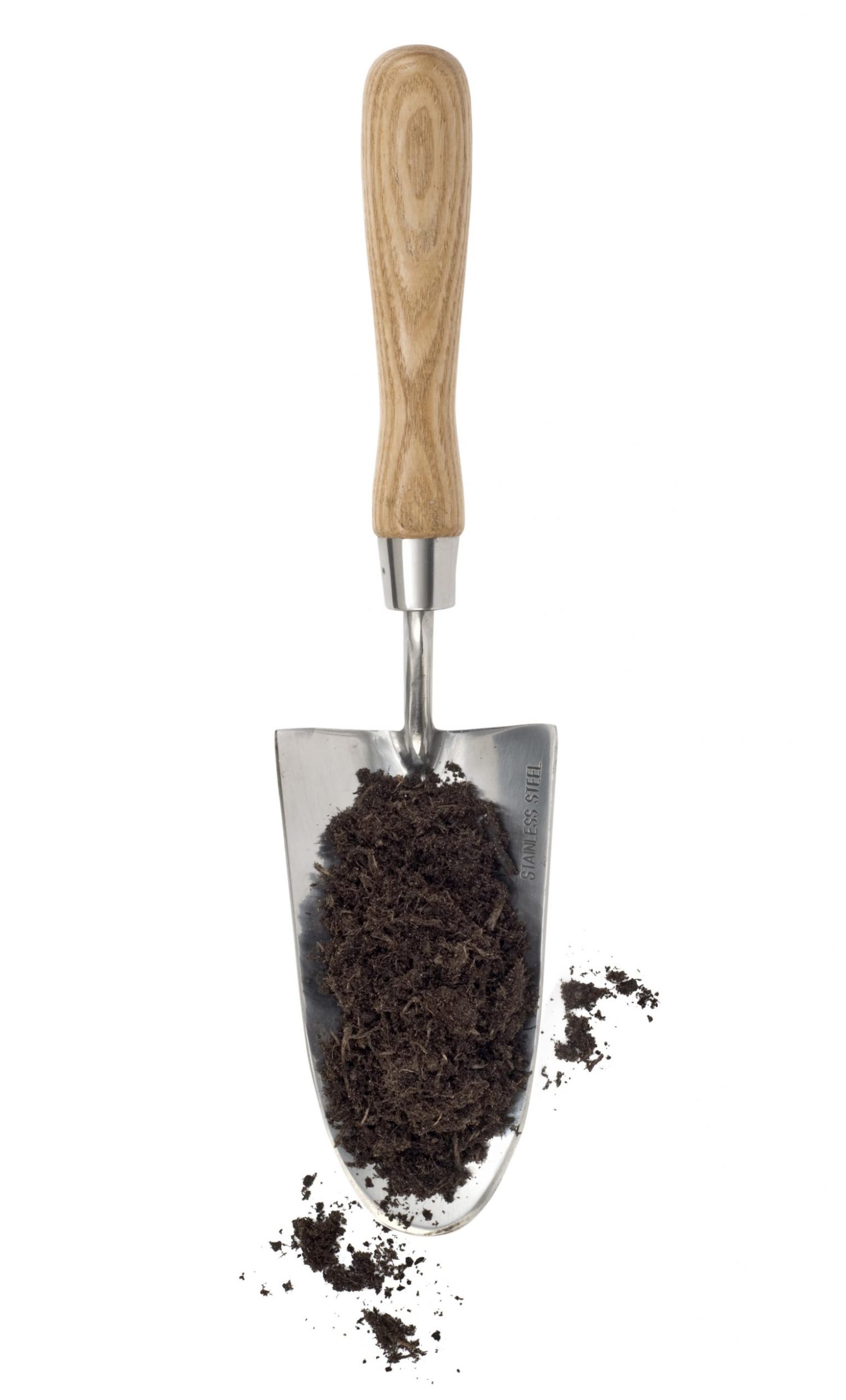
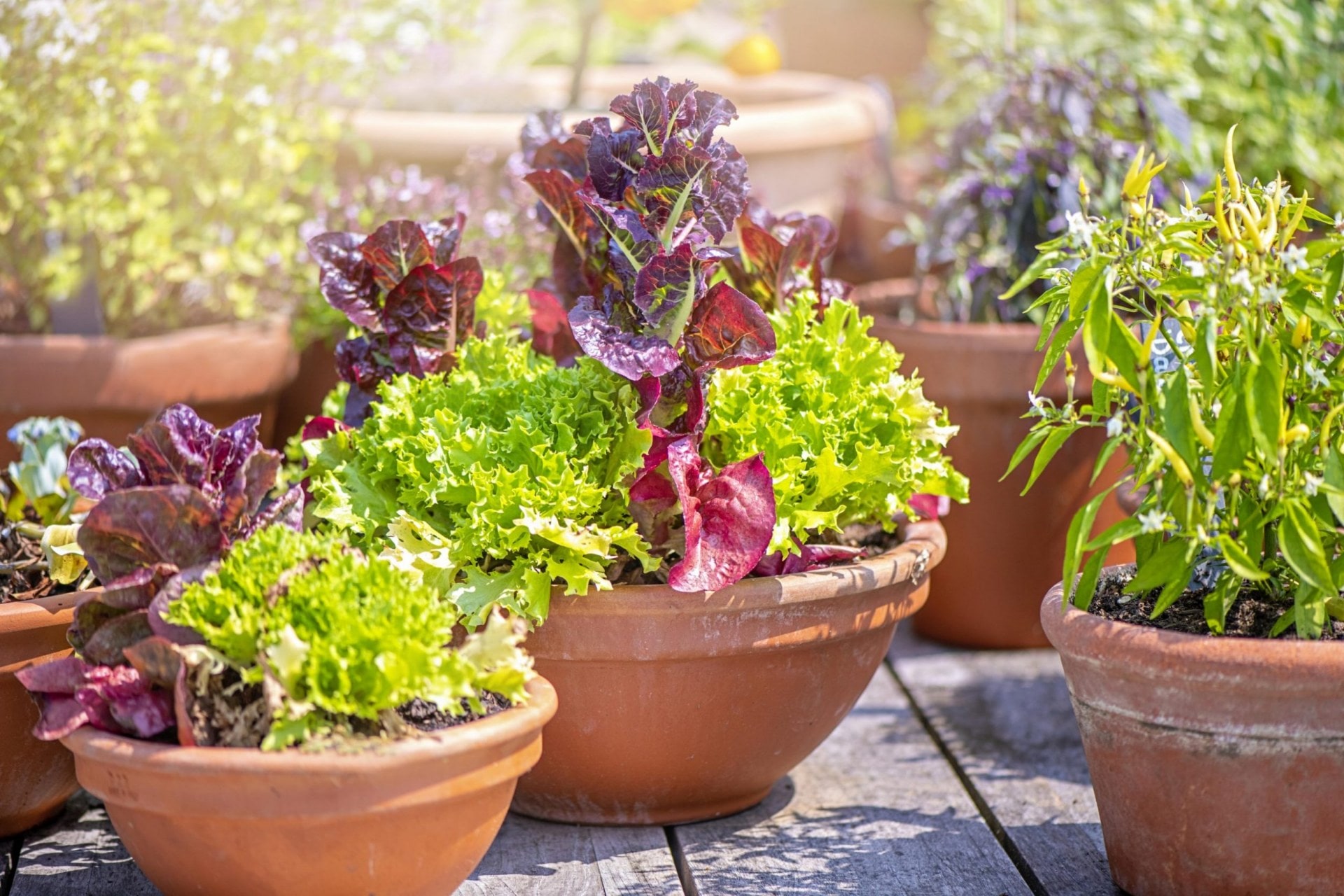
34. Pot Progress
Most plant and seedling pots are made of polypropylene. The pots are recyclable, but a lot of councils don’t accept them in kerbside recycling because they’re often contaminated with dirt. Mitre 10, which sells over 11 million of these pots a year, is running a recycling programme to stop them ending up in the tip. Customers can return clean (this is important!) plant/seedling pots to participating stores, and they will then be shredded and remoulded into new ones.
35. Grow From Seed
It’s great that pots can be recycled but to cut your plastic seedling tray use, try growing from seed. And go for terracotta, ceramic, wood or metal pots.
36. Compost
Make your own compost so you don’t need to buy plastic bags of the stuff. Or think about getting a trailer-load of mulch or compost. Compost bags can be recycled in soft-plastic collections if they’re completely clean and dry, but a lot end up in landfill.
37. Natural Ties
Avoid plastic-coated ties and use twine and jute to tie up plants instead. As an added bonus, twine is less likely to cut into tender plant stems than plastic ties.
38. Small-Scale Growing
Some veges are tricky to grow and you need a lot of space, but lettuces, spinach and herbs are not that hard, and can be grown in a pot on your balcony. Even a little garden will cut the number of bags of greens you buy – fresher too!

